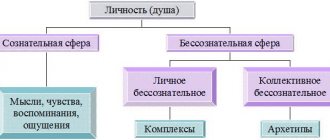The concept of “socialization” consists of many different structures on the basis of which the process of integration into society is built. The task of socialization is to instill in each individual those values and norms of behavior that are approved by society . There are several concepts that are completely opposite to socialization. The names of these phenomena are formed by adding prefixes. These phenomena include “resocialization” and “desocialization.” In this article we propose to talk about what resocialization is and how it manifests itself.
Socialization (lat. socialis - social) is a complex process of including a person in social practice
Use of the term
The concept of “resocialization” is quite widely used not only by representatives of social psychology and sociology.
This term is also mentioned by lawyers and teachers. It concerns social measures that are applied by society to people who have taken the criminal path. In pedagogy, resocialization is the acquisition of new skills and values that should replace the old ones that are outdated or insufficiently learned. This entire process is directed towards individuals with various types of deviant behavior. The goal pursued by resocialization is the restoration of lost social status, as well as the reorientation of negative attitudes. The solution to this problem lies in the positive attitude of the pedagogically oriented environment towards the individual. “Resocialization of convicts” is a term used by lawyers when solving problems of penal policy. It applies to young people. It is noted that young subjects have a higher ability to resocialize than representatives of the older generation. For young people, this term may not mean the process itself, but its result.
Correction path
Resocialization is applied to an individual who has taken an antisocial path of behavior by various state institutions of social control. This concept means a certain type of change that occurs in a person, which allows him to adopt a type of behavior that is radically different from the previous one. In this case, the prefix “re-” means the destruction and dismantling of negative values and norms that have been internalized by the individual. During this process, a person accepts those positive concepts that are approved by society.
Who carries out resocialization?
The entry of an individual onto the path of antisocial development is recorded by institutions that exercise social control. At the same time, they can also take appropriate resocialization measures. This process involves educational, military and labor groups, schools and families, public organizations, as well as law enforcement agencies represented by their preventive structures. Often, the resocialization of an individual is carried out without imprisonment. However, if a person commits a socially dangerous act, more stringent measures may be taken against him. In this case, by a court verdict, he is sent to prison. At the same time, resocialization is a certain stage designed to restore the socially useful connections of the individual with society. During this process, asocial roles and behavior must be destroyed, and positive patterns of social values must be consolidated. The special institutions that carry out the process of resocialization in this case are the following:
— educational and labor colonies where minors are kept;
— corrective labor colonies;
- prisons.
The main task that these social institutions are designed to solve is the re-education and correction of convicts, that is, resocialization.
What is resocialization of convicts?
Resocialization of convicts implies the process of adaptation and restoration of skills for entering society after release from punishment; This is a system of rehabilitation measures to restore weakened or lost social functions while serving a criminal sentence and personal status.
What is called resocialization in Russia is defined in foreign practice as social therapy, the main areas of which include:
- training of convicts;
- labor activity;
- playing sports;
- participation in cultural and educational events.
Resocialization work
Social rehabilitation in Western European countries is carried out by relief societies and various foundations, the Salvation Army, the Church, etc. Similar work in Russia is carried out by rehabilitation centers. In this regard, there is a need for the accelerated development of a humanistic psychology that would be focused on the needs of this social practice.
It is worth saying that the need for social adaptation exists for almost every person. Moreover, positive results appear only when emotional stress is relieved.
There are certain life cycles in a person's biography. These are periods that separate important milestones from each other. In each new cycle, social roles change and a new status is acquired. Often life stages are characterized by a rejection of the previous environment and habits, friendly contacts, and changes in the usual routine. When moving to a new step, a person enters a new cycle. At the same time, he has to constantly retrain. This process is divided into two stages, which have special names. When a person is weaned from previous norms, values, rules of behavior and roles, they speak of desocialization of the individual. The next stage is learning. It allows you to acquire new roles, rules of behavior and values to replace the old ones. This process is called resocialization, which can be so deep that it leads to radical changes in lifestyle.
An example of this is a Russian emigrant who, having arrived in America, finds himself in a completely new, diverse and rich culture. The individual has to abandon old norms and traditions, which happens under the influence of new life experiences.
Do addicted people need resocialization?
Why is rehabilitation and resocialization of alcohol and drug addicts carried out? First of all, it allows you to record the progress made, make it visible and long-term. As part of the work of the Rehabilitation Center, active consulting support is provided to people who have entered the rehabilitation period, and groups are created for relatives and friends of patients. During the outpatient stage of treatment, many prefer to stay in so-called “halfway houses”, which leave a significant chance for recovery without returning to an environment that negatively affects the person.
Even at the stage of getting rid of addictions, psychologists carefully work through the patient’s complex of problems, identifying his most vulnerable areas, which can provide the basis for a return to previous habits. A person must be prepared for the fact that his recovery and return to normal life will not end beyond the threshold of the Center. At the outpatient stage of treatment, the frequency of meetings with specialists is limited to one or several visits per month. But the patient receives the psychological help he needs by communicating with like-minded people and attending support groups. Thus, it is during the period of resocialization, which is on the path to recovery, that a person gains confidence in his abilities and again learns to build the social connections he needs.
How does the desocialization process work?
Many researchers in the field of psychology are interested in the question of the reasons for choosing antisocial behavior. According to experts, the choice of an antisocial model is carried out unconsciously. Many children, adopting the behavior of others, do not think about its direction. It is important to note that receiving approval from representatives of a negative social microclimate leads to an increase in the manifestation of antisociality. In the minds of many teenagers, a clear attitude is created that such behavior is inherent in every adult.
Social control makes it possible to prevent such unfavorable development. In the case when a teenager has embarked on the path of correction, it is very important that he feels support and attention to his difficulties. It should be understood that in a dysfunctional environment, values such as kindness and hard work are relegated to the background.
What is personal desocialization and why is this issue of particular importance? According to psychologists, this process has a spontaneous course. Quite often, criminal elements deliberately cause desocialization in adolescents in order to involve them in criminal activities. This process is based on the technique of reward and punishment.
Resocialization means a change in a previously socialized person, a rejection of previous attitudes and ideas.
A person following an antisocial path needs strict control aimed at resocialization. Various municipal services can act as a supervisory authority. The term "resocialization" is used to refer to the process of changing behavior, which is exactly the opposite of the previous one. In a specific example, the prefix “re-” is used to denote the dismantling of negative norms and rules that were previously used by the individual. Throughout the entire process of resocialization, a person is engaged in self-improvement and discovers in himself those qualities that cause public approval.
The term “resocialization” is widely used in various fields of human activity, including social psychology, sociology, pedagogy and jurisprudence. This concept is closely related to the measures that are used in society in relation to people leading a criminal lifestyle.
Pedagogy uses resocialization as a tool through which new life values are instilled in a person, which can replace those previously learned. The focus of this process is carried out in relation to people whose behavior patterns differ significantly from generally accepted rules. The main goal of such a tool is to restore lost status and change negative attitudes. In order to achieve the necessary result, the person being corrected must be immersed in a prosperous environment.
Resocialization of convicts is a term that is widely used in jurisprudence. Most often, this concept is used when resolving issues related to penal policy. This tool is used only for young people, since representatives of this age group are more susceptible to resocialization. In this example, resocialization is not the process of instilling generally accepted norms and rules, but the end result.
Socialization goes through stages that coincide with the so-called life cycles
Mechanism of desocialization
Why does a person choose an antisocial path? At the initial stage, this happens unconsciously. Children and adolescents adopt the behavior patterns of those adults who lead an antisocial lifestyle. In doing so, they satisfy their desire to gain approval from this negative microenvironment. Moreover, in their opinion, this way they become adults faster. In this case, the negative microenvironment exercises social control over the individual. In this case, adolescents or children receive praise, approval and support if they have taken the path of antisocial behavior. Hard work, mercy and kindness in such an environment are simply ridiculed.
The entire process of desocialization sometimes occurs spontaneously. However, in some cases it is carried out purposefully. An example of this is instilling criminal behavior in adolescents to involve them in illegal activities. In this case, the mechanism of punishment and rewards is widely used.
Who is responsible for resocialization
Resocialization is a series of social control measures aimed at correcting an individual with an antisocial behavior pattern. Such control is carried out by educational and military groups, schools, institutes and public organizations. Representatives of law enforcement agencies, who act as preventive structures, have special power in this matter. It is important to note that in most cases, resocialization implies the absence of measures depriving freedom. However, in the event of criminal acts committed against an individual, various sanctions may be taken.
In some cases, violation of generally accepted norms and rules can lead to long-term imprisonment. Considering the above factors, we can say that resocialization is an important tool that allows individuals to return their former social skills. Throughout this process, various methods are used to help eliminate antisocial behavior and reinforce positive attitudes. The following organizations can act as regulatory bodies carrying out resocialization:
- educational and labor prisons for juvenile offenders;
- correctional labor institutions;
- rehabilitation centers for drug addicts and alcoholics.
The task of such institutions is to correct people who have taken the wrong path in life.
Resocialization of personality
For harmonious re-socialization, the individual’s family is first responsible, then the school and educational groups, then various social organizations. Law enforcement agencies act as preventive structures.
Resocialization means transformations in which a mature personality adopts behavior that is strikingly different from what was previously adopted. It occurs throughout the life of an individual and is associated with changes in his orientations, morals and values, norms and rules. This is a kind of replacement by a person of certain patterns of life behavior with new skills and abilities that correspond to the conditions that have changed as a result of technological and social transformations. Modification of values that have become inadequate according to the new prescriptions of the society in which he lives. For example, all former prisoners undergo this process, which consists of the individual becoming accustomed to the existing system of ideas and values. The process of resocialization goes through emigrants who, due to the move, find themselves in a completely new environment for them. They go through a break from their usual traditions, rules, roles, norms and values, which is compensated by acquiring new experiences.
The personality traits of individuals, which are formed in the process of their life, are not indisputable. Resocialization can cover many types of activities. Psychotherapy is also a kind of secondary socialization. With its help, people try to understand and deal with their problems, conflicts, and change their usual behavior.
The process of resocialization occurs in various spheres of life and at its different stages. Officials at the state level are addressing the problem of re-socialization, and a certain set of measures is being developed. There are such concepts as resocialization of the homeless, social resocialization, resocialization of the disabled, adolescents, and former prisoners.
Resocialization of the homeless is a set of measures that are aimed at eliminating homelessness, providing homeless people with housing, and organizing appropriate conditions for them to exercise human rights and freedoms (for example, the right to work).
Social resocialization may be associated with the restoration of previously convicted persons to their legal capacity and status, i.e. their revival as subjects of society. The basis of such re-socialization is a change in the attitude of society towards them at all levels, from officials to the family.
Resocialization of disabled people consists of preparing them for life in society, helping to transform previously usual norms and rules of behavior for them, and actively including them in the life of society.
Relevance of the issue
The topic of resocialization is closely interconnected not only with criminal actions. A similar process is carried out in relation to people from other categories. An important role in the development of modern society is given to the process of resocialization of people with addiction, personality disorders and mental illnesses, as well as in relation to people under severe stress due to natural disasters, terrorist attacks or road accidents.
Desocialization and resocialization are two sides of the same process: adult, or continued, socialization
People in the above categories need more than just social support. An important component in the process of resocialization is psychotherapy, auto-training and psychotherapeutic correction. In order to speed up adaptation in society, emotional stress should be eliminated.
Vivid examples of resocialization are demonstrated by such municipal services as the Church, the Salvation Army and charitable public organizations. However, such municipal services operate only in foreign countries. On the territory of the Russian Federation, specialized centers are engaged in social rehabilitation. Today, the issue of developing such centers is highly relevant, since the percentage of people in need of help is only increasing every year. Every person throughout his life is faced with the need for social adaptation. In order to achieve the desired result in this process, it is very important to relieve psychological stress and eliminate internal conflicts.
The biography of each person is based on certain current cycles that are separated by fundamental milestones. During a cycle change, changes in the social plane are observed, which is expressed in the form of the acquisition of a new status. During a cycle change, a person changes his lifestyle, social circle and worldview. Thus, a transition to a new stage of self-development is carried out. The above process is an integral part of the development of the human personality.
The process of personal development consists of two important components. Refusal of habitual norms and values, as well as the performance of a familiar role, is called desocialization. The second component of personal development is resocialization, which involves learning new rules and assimilating norms characteristic of the acquired status. Constant personal development contributes to changes in lifestyle, which directly affects the process of human life.
The severity of the problem
The topic of resocialization is associated not only with those who have committed criminal acts. It also applies to other categories of people. Thus, the resocialization of drug addicts, patients, as well as those who have experienced stress during natural disasters, military operations or accidents is of great importance for society.
Such people need not only social assistance. To carry out the normal process of resocialization, psychotherapy and psychocorrection (auto-training, etc.) will be needed. Social adaptation of such people should not be expected unless the emotional tension of the individual is relieved.
Desocialization and its causes
So what is desocialization? This is, first of all, a person’s loss of social experience, which is reflected in all his activities and the possibility of self-realization. A person becomes an outcast, as a rule, not of his own free will - this is caused by severe stress or initially incomplete socialization.
Of course, desocialization is a multi-level process. A slight desocialization can occur during a long absence from the team, for example, during a prolonged illness or a long vacation. A person loses direct contact with people and “falls out” of his usual way of life. The same effect can be caused by the abuse of social networks, television programs and computer games, that is, if real life is replaced by virtual life.
At this level of desocialization, deep changes in the psyche do not occur, so this process can be reversed. If a person decides to change his lifestyle and change his attitudes, then he will begin to resocialize. Resocialization involves self-education, acquiring new values and mastering new roles, or returning to a normal standard of living. Desocialization and resocialization are also natural processes of growing up, as an individual changes throughout life and revises his views.
Deeper desocialization occurs, for example, due to improper upbringing in the family. Surrounding a teenager with an atmosphere of indulgence and trying to protect him from all the difficulties of life will increase the chances that socialization will go wrong. Greenhouse conditions do not contribute to the assimilation of the norms and rules of the society that surrounds the individual, so it is more difficult for such a person to get used to it and sometimes it is difficult to perform the simplest actions, including communication with people. In addition, the process of socialization can be influenced by belonging to various kinds of subcultures or criminal groups: their norms and rules are often opposite to social ones, which also creates unfavorable development conditions for the individual.
At a more mature age, factors such as:
- job loss
- death of loved ones
- participation in prolonged hostilities
- presence of mental illness or personality disorders
- various addictions
Severe stressful events can take a person out of his usual lifestyle and social circle for a long time; he becomes withdrawn and loses developed social skills.
In addition to all of the above, there is also voluntary desocialization. A classic example is going to a monastery - a person withdraws from the world and everything that is inherent to him, but does not degrade, but adopts other norms of behavior and is spiritually enriched. It is worth noting that in such cases, desocialization and resocialization occur simultaneously.
If we summarize all the factors that lead to deep desocialization, we can see that the main reason is the voluntary or involuntary alienation of the individual from a social group or institution. This limits the understanding of the norms and foundations of society and prevents a person from finding his place in life.
Since psychology distinguishes between two main levels of socialization, the reverse process also occurs at both. The primary level of socialization includes the individual’s inner circle: family, close relatives, friends. The secondary one represents a large number of people surrounding the individual: acquaintances, colleagues, various social groups and public institutions. If social skills are lost at one of these levels, they speak of the corresponding type of desocialization.
This process is also significantly influenced by a person’s age: the older he is, the lower the severity of the violations, since all basic knowledge and skills are already firmly established in the psyche. Most often, in such cases, desocialization may mean the severance of some social ties, which in general has virtually no effect on other areas of an individual’s life.
Desocialization is much more dangerous for young people. Here, the process of socialization can not only be greatly distorted, but also lead to such sad consequences as crime, drug addiction, etc., including exclusion from communication with people in general. The extreme degree of this process is the degradation of personality, that is, the complete loss of guidelines in life and any interests other than the most primitive ones.
It is important to note that deep desocialization is dangerous not only for the person who has become its victim, but also for society as a whole. For example, crime poses a direct threat to people’s lives, and a major military conflict, which results in many soldiers who have lost the skills of peaceful life, damages their well-being and health. This is why resocialization is so important.
Detailed analysis of terms
The term “desocialization” is used to describe the phenomenon that consists in the assignment of antisocial norms and values to an individual. This process is the root cause of antisocial behavior and the acquisition of negative attitudes in the behavioral model. Desocialization is one of the factors contributing to destabilization, on the basis of which the deformation of connections with society occurs.
Understanding what desocialization is, it should be said that this process implies a partial or complete loss of social skills. Such problems affect the conduct of life and the process of self-realization of the individual. In such a situation, the person is assigned the “label” of an outcast. According to experts, the reason for the formation of desocialization is associated with the influence of stress factors and problems that arise during the initial immersion in society . It is important to pay attention to the fact that desocialization has a multi-level structure.
Partial desocialization occurs against the background of prolonged isolation from society. Most often, this phenomenon is observed in people who have returned from a long vacation or sick leave. Losing direct contact with other people changes the rhythm of life and makes a person more prone to loneliness. A similar effect is observed in people with Internet addiction, which manifests itself in the form of abuse of computer games and social networks. People with this type of addiction often replace real life with virtual space.
Psychologists note that in this case, the process of desocialization does not have a strong impact on the state of the psyche, which indicates the possibility of correction. Changing your lifestyle and changing your priorities allows you to start the process of resocialization. This phenomenon should be perceived as the independent cultivation in one’s own personality of those qualities that represent paramount values for modern society. The above-mentioned events are an integral part of the formation of the human personality. During the process of growing up, a person changes his worldview, which has a certain impact on his incentives and life itself.
Desocialization is the result of a voluntary renunciation of old values
A severe form of desocialization is observed in children raised in dysfunctional families. An incorrect approach to the educational process can also have a negative impact on the development of personality. The indulgence of parents and the desire to create a barrier from the difficulties of life significantly increases the risk of various problems arising during immersion in society. A person raised in greenhouse conditions does not readily assimilate the norms of the social groups surrounding the individual. Against this background, various problems associated with performing the simplest actions are observed, among which the construction of communication connections should be highlighted.
Resocialization of adolescents is a complex process, the success of which depends on many different factors.
Belonging to criminal groups or subcultures can instill false values that are directly opposed to the norms of cultural society. Such circumstances can become unfavorable ground for personal development.
Violations in the sphere of socialization can be caused by factors such as:
- loss of a close relative;
- job loss;
- personality and mental disorders;
- Act of terrorism.
Stressors can have a profound impact on a person's personality, which can lead to changes in lifestyle. Under the influence of stress, a person can greatly narrow his social circle, isolate himself from society and lose the skills of building communication connections.
There are voluntary types of renunciation of social norms and values. One example of voluntary desocialization is entering a monastery. It is important to note that the rejection of generally accepted rules in favor of spiritual enrichment allows the human person to constantly improve himself. The uniqueness of this example lies in the simultaneous occurrence of the processes of desocialization and resocialization.
Resocialization
Resocialization is focused on returning people to society and restoring their appropriate abilities. Resocialization includes instilling the values of society, developing the skill of setting positive goals and restoring broken social ties.
Today, the problem of resocialization of convicts is quite relevant. To prevent them from committing new crimes, it is necessary to take care not only of their punishment, but also of proper re-socialization, because only in this case will correctional institutions fulfill their function and contribute to the protection of law and order. An example of such actions could be:
- individual approach to each prisoner
- identification of violations in the process of socialization
- development of a program for the correction of personal qualities
- encouraging socially adaptive behavior
Correctional psychology deals with all this.
Another important task facing society is the resocialization of children and adolescents. Since they can only assimilate social norms and not evaluate them, the organization of the pedagogical process plays an important role, allowing them to develop the necessary skills. Successful socialization at an early age helps prevent many adverse events.
>Desocialization
Resocialization in the family
The family is an important condition for the processes of resocialization. Full socialization of children should begin with the family. The family must help the child adequately understand the requirements of society and their laws, develop and form certain communication and interaction skills that will correspond to accepted norms in a particular society. Dysfunctional families are characterized by the inability to instill skills of normal behavior in the family, which, in turn, leads to the inability of children to build their own correct family model.
In addition to the influence of the family, other social institutions, such as kindergartens, schools and the street, also influence the child in the process of life. However, the family remains the most important factor in the process of harmonious resocialization of the individual. Re-socialization in the family occurs as a result of the process of education and social learning.
The processes of socialization, resocialization and desocialization of the personality of individuals directly depend on the style and methods of education used by parents. For example, a child raised by American parents will be very different from children raised by Japanese parents.
The main factors influencing the secondary socialization of children in the family are the influence of parents (their expectations, personal characteristics, upbringing models, etc.), the qualities of the children themselves (cognitive abilities and personal characteristics), family relationships, which include relationships between spouses , relationships with children, social and professional contacts of parents. The disciplinary methods of education used and its style reflect the belief system of the parents and their personal qualities.
The most important things in the processes of secondary socialization of a child in the family are the ideas of the father and mother about his motivations and behavior, the beliefs of the parents and their social purpose.
The main reasons for the violation of the resocialization of children in the family are constant violations by parents of the ethics of family relationships, lack of trust, care, attention, respect, protection and support. However, the most important and most significant reason for violations of re-socialization is the incompatibility of the moral qualities and moral attitudes of parents, the inconsistency of their opinions regarding duty, honor, morality, responsibilities, etc. Often such inconsistency can come into conflict if spouses have diametrically opposed views on the value system and moral qualities.
Also important in the processes of personality resocialization is the influence of older brothers and sisters, grandparents, and parents’ friends.
Factors of socialization and desocialization of youth.
The specificity of the socialization of youth is that at youth age its primary stage ends and the secondary one begins. The individual goes through the primary stage in childhood. Thanks to her, he becomes a full-fledged member of society. The secondary stage is a subsequent process that occurs with an already socialized individual. It is characterized by the fact that the individual masters the norms and values of the environment, taking into account those already acquired by him at the first stage. He no longer focuses so much on specific “others”, but on the generalized “other,” identifying himself with him or opposing himself to him. At this stage, a problem of consistency between initial social adaptations and internalizations often arises. In early adolescence, previously acquired identity is questioned. The awareness of the need to solve adult problems causes the experience of how the individual looks in the eyes of others in comparison with his own idea of himself.
A significant difference between the socialization of youth and the socialization of a child is that at this stage the so-called secondary agents of socialization play a more significant role.
The specificity of youth socialization also includes the great importance of so-called transition barriers - boundaries between different stages of life or life situations. So-called rites of passage (a term coined by Arnold van Gennep) - an institutionalized and formalized system of collective action adopted in a given culture - help to overcome such barriers. Van Gennep has constructed a universal model of such rituals, which consists of three stages: a phase of separation from the group, a boundary phase and a reintegration phase. The expression of such rituals in traditional societies are initiation rites, which to one degree or another exist in modern societies.
The main factors of youth socialization that determine its results include:
- the nature and characteristics of social control in society and group. The nature of social control is influenced by: the ratio of formal and informal regulators, the obligatory or optional nature of following social (including legal) norms, the inevitability of sanctions for their violation, the density of social control, etc.;
- the degree of agreement or disagreement between micro-group and macro-group values and norms, the degree of heterogeneity, subculturality of society and the individual’s environment;
— features of the education system, its focus only on training or education, including ideological, of the individual;
— features of the family and demographic situation in society, the presence of generational conflict or relatively balanced interaction of different cohorts; the presence of ageism in society;
— discreteness, discontinuity of the linear development of society, crises in its development;
— economic situation in society, demand for youth in the labor market;
— the political situation in society, the spread of extremist sentiments and practices;
— state information policy and the nature of media activities, their focus on certain topics; the degree of diversity of information sources, etc. The importance of the media in the process of socialization is due to the fact that they are not only channels for the dissemination of norms and values. They are also capable of diverting mass consciousness away from real problems, replacing them with false ones, concentrating the attention of the mass audience on a certain range of phenomena, imposing assessments and attitudes, etc. Many modern researchers believe that in modern Russian society the media play a predominantly destructive role, being one of the factors in the formation of a criminal personality. This is facilitated by both the criminal theme of many artistic and informational stories, and the moral and value relativism in the presentation of material;
- the nature of reference groups - those who are role models for young people.
These factors of socialization are closely related to factors of desocialization of youth. In Russian society, the most significant factors of desocialization of youth include:
— discrepancy between officially declared goals and actual practices (political, educational, professional, etc.);
— military service upon conscription, including in “hot” spots;
— the spread of corruption networks and their inclusion in absolutely all spheres of society;
- degradation of the education system, replacement of the criteria of professionalism, scientific character, knowledge with formal indicators - a diploma, or economic ones - the economic efficiency of educational and scientific activities;
- the dominance of mass culture, in fact its replacement of other cultural models;
— crisis phenomena in the functioning of the family institution;
— the spread of a criminal subculture in society, etc.
In particular, the situation of social uncertainty in which Russian society found itself in the early 1990s. caused a decrease in the role of official-institutional channels of socialization and an increase in the importance of the socializing influence of the immediate environment, the media, and examples of mass culture; changing the ratio of the subjective significance of public and personal interests; weakening of personal identification with the state and society and increasing awareness of personal autonomy, alienation from social and legal norms. The de-ideologization of Russian society entailed the loss of value-normative certainty and identity for the majority of Russian citizens, thereby affecting the process of socialization. In relation to youth, the processes of de-ideologization result in a crisis of identity, and, in particular, civic identity, which is based on the civic position of the individual, based on the identification of representatives of the younger generation with society, with the country and with the state1.
According to the study “Social outsidership of youth in the Belgorod region: mechanisms and social consequences” (2006), 46.6% of young people agreed with the statement that today it is impossible to succeed without breaking the law (34.8% agreed with the opposite statement). A positive answer to the question “Do you agree that some moral norms cannot be violated under any circumstances?” given by 60.4% of respondents (negative - 21.0% and undecided - 18.6%). Thus, at the declarative level, the majority of young people demonstrated the presence of certain normative taboos. But already when answering the question “Do you allow the possibility of violating the law if this is necessary to achieve your goals?” the distribution of judgments was fundamentally different. 14.6% of respondents expressed an unequivocal rejection of breaking the law. 24.8% made a similar assumption. The majority – 53.0% – indicated that everything depends on the circumstances. And 7.6% found it difficult to answer.
Actually, there is nothing unexpected in this distribution of data. With a sufficient level of reflection, virtually every thinking person (at least in Russia) comes to the conclusion that there are too many laws and some of them are clearly unfair, so that violation of these laws cannot be regarded as an absolute social danger. Another thing is that young people in general are not fully capable of such reflection and give an answer without much thought. And, in general, this kind of judgment clearly characterizes the vacuum of normativity in modern Russian society, its anomic character. According to a 2002 survey conducted among Krasnodar students P.S. Samygin, only 14.5% of students believe that there are no goals for which one can commit a crime. To get out of poverty, 4.0% consider it possible to commit murder, 13.5% consider it possible to commit robbery and burglary, 32.4% to commit theft, and 71.6% to evade taxes1.
The consequence of the low level of interpersonal and institutional trust among young people is the atomization of social practices and the unwillingness to solidarize on a positive basis for the sake of realizing their own interests. Low readiness for long-term cooperation and collective action is expressed, first of all, in a low assessment of the role of political parties and public organizations and in weak involvement in their activities.
Resocialization and socialization
The adaptation of an individual to a community of his own kind, his assimilation of generally accepted views, value orientations, and behavioral skills is socialization.
This process accompanies the entire stage of personal maturation. First, the child’s socialization is carried out by his family, then by kindergarten, school, and university. Having gone through these “universities of primary socialization,” the young man joins the workforce, becomes a member of various public and cultural organizations, where his social “education” continues.
At some stage of life, an already formed personality inevitably faces the problem of resocialization. The need for reorientation is dictated by changed life circumstances. Thus, personality transformation will require the following significant changes:
- moving to another city or country;
- marriage or divorce;
- motherhood or paternity;
- change of profession or job;
- increasing qualification or material status.
Some scientists classify psychotherapy as a form of resocialization. A good mental health specialist can help a patient not only cope with his internal conflicts, but also significantly correct his behavior pattern.
Thus, resocialization and socialization are interconnected processes that accompany a person throughout his entire life course and are the most important conditions for his development and self-realization. In some extraordinary cases they can become identical.
We are talking about a complete transformation of the personality, falling from one reality to another:
- during long-term hospitalization;
- when accepting a new faith;
- during emigration, entailing a change in the cultural and national environment;
- with a long period of imprisonment.
Each of these situations will require a radical change in personal emphasis, “switching” to a completely new wave, up to the acquisition of a different social identity. The key condition for success in such a reconstruction is the presence of a reliable social platform, that is, the active interaction of an individual with a new environment that is significant for him.
Disadaptation in children
The maladaptation of children in modern society is of particular importance. More and more children in developed and developing countries suffer from a variety of behavioral and mental disorders. Most of them cannot adapt normally to society and, as they grow and mature, the number of problems only increases. Moreover, according to experts, only a little more than half of these children suffer from neurological diseases and psychopathologies; in others, disruption of social adaptation occurs due to their living conditions, improper upbringing or lack thereof, as well as the influence of parents and the environment.
Social maladjustment of children and adolescents can have an extremely negative impact on their development - such children cannot establish normal contacts with their peers, and then with the people around them, they develop personality deformations, antisocial tendencies, they may develop a neurological disease or they will not be able to achieve any goals. - success in the future.
Timely correction of such disorders in children and adolescents helps them quickly overcome the state of maladjustment and learn all the necessary skills. In adulthood and in older adolescents, this requires much more time and effort - this is due both to less plasticity of the psyche and to the number of “skills” that need to be replenished.
This has been repeatedly confirmed by numerous studies and practical activities - children at an early age who were in a state of social maladaptation easily and quickly catch up and even outstrip their peers in development when placed in favorable conditions. But for adults who grew up in a state of maladjustment, it is much more difficult to assimilate the necessary information and “join” a more complex society.
Post-rehabilitation development: resocialization as a return to normal life
Qualified psychotherapy for alcoholics , drug addicts, and gambling addicts can literally let addiction off the hook. But, having gained freedom, not everyone is ready for the degree of responsibility that turns out to be associated with it. People undergoing resocialization need to re-understand simple universal human laws, learn the rules that society sets from scratch. A sober life without addiction requires certain efforts from the person leading it. But everyone can overcome the problems that arise outside the threshold of the Rehabilitation Center.
At the stage of resocialization, a whole range of specialists work with the patient, from social workers to lawyers, who are able to provide the necessary knowledge base for solving any complex problems - employment and writing a resume, confirmation of qualifications in the profession, solving housing or financial problems. Any of these points is significant and important for a person who has undergone rehabilitation procedures. To make the transition from the safe, closed environment of the Center into the big world as painless as possible, it is worth making sure from the very beginning that a person has the necessary alternatives to previous harmful habits.
Acquiring sports skills, finding new friends with similar interests - all this allows you to undergo resocialization with minimal losses. The outpatient therapy regimen provides an opportunity to consolidate acquired skills in practice and creates a safe environment for future life. This is how employees help their patients overcome the difficulties they face and give a chance for complete recovery to each of the people who seek relief from addiction.
You can get a free consultation from our specialists now, call us! Don’t put off your life or saving a loved one until tomorrow!
Causes of maladjustment
Desocialization or mental maladaptation can occur due to psychological, physical or social reasons. The most significant today are considered to be social and socio-economic reasons, and disturbances in the functioning of the nervous system and mental characteristics can be corrected by proper upbringing and development, but failure to comply with the rules of upbringing in society can lead to problems with social adaptation even with full physical and mental health.
Social psychological disadaptation occurs when:
- Physical or biological disorders - brain injuries, diseases of the nervous system, infectious diseases that occur with high fever and intoxication.
- Psychological disorders - features of the nervous system (weakness, excessive excitement, disturbance of volitional processes), character accentuations, and so on.
- Social disorders - this factor is especially significant in childhood and adolescence. Improper upbringing and rejection of a child or adolescent by a family or team can lead to maladaptation and the development of serious mental disorders. Adults may also suffer from socio-psychological maladjustment if they find themselves in an unfamiliar and hostile environment, a situation of general rejection or trauma (for example, a mentally healthy, fully adapted adult placed in prison or an antisocial community).
Desocialization in childhood and adolescence can also be caused by some other factors, for example, keeping a child for a long time without parents or impaired communication at school.
Hospitalism in children is a pathological syndrome that develops in children who have been in a hospital or boarding school for a long time, forcibly separated from their parents and their usual social circle. A lack of communication leads to delays in physical and mental development, the formation of emotional disorders and social maladjustment. Such disorders arise due to the lack of sufficient attention from adults, as well as a lack of positive and negative stimuli from society. In such conditions, a child is left to his own devices and cannot fully develop.
Hospitalism syndrome in children develops not only when placed in a hospital, but also during a long stay in a boarding school, orphanage and other places where the child is deprived of his usual social circle.
Adolescents are more likely to experience school maladjustment. Desocialization develops when a student is “different” from other peers, and the reason for “expulsion from society” can be any distinctive feature: low or high academic performance, external data, individual traits, or something else. School maladaptation often occurs when a child’s familiar environment changes, a sudden change in his appearance or social factor, sometimes for no apparent reason. Rejection, ridicule from peers and lack of support from teachers and adults lead to a disruption in the establishment of social connections and loss of one’s place in society.
In addition to the above reasons, desocialization can occur due to nervous and mental disorders in children and adults:
- autism
- Schizophrenia
- Bipolar personality disorder
- Obsessive-compulsive disorder and so on.
Resocialization of those sentenced to imprisonment
Today, the resocialization of convicts is a priority task that needs to be addressed at the level of government agencies.
The process of resocialization is aimed at returning those released to life in society, acquiring the necessary skills for life in society, and complying with accepted norms and legislation.
A convicted person who has not undergone the resocialization process is dangerous to society.
The activities of correctional institutions should be aimed at resolving 2 main problems:
- execution of punishment;
- resocialization of the convicted person, the formation in him of a set of qualities necessary for adapted behavior in society.
Resocialization includes:
- prevention;
- correction;
- recovery.
Prevention is aimed at eliminating and smoothing out the causes, conditions and factors that caused deviations in personality development. It is often focused on a person’s social environment.
Special prevention allows you to create a climate in society that makes it possible to prevent the commission of crimes. General prevention is aimed at developing anti-criminogenic motives for behavior and understanding the inevitability of punishment for a crime committed.
Correction involves working with specific deviations that the convicted person has and correcting behavior.
With prolonged involvement in criminal activity, a person develops certain habits and skills that make up a criminal stereotype. He loses normal work skills, acquiring criminal ones in return.
Before adapting a criminal to life in an adequate social environment, it is necessary to destroy the criminal stereotype in him and replace him with a work stereotype.
Restoration of rights involves taking into account the key provisions of the UN Convention regarding human rights to:
- life;
- a dignified existence;
- getting an education;
- labor, etc.
Preparing convicts for release is an important stage in the activities of correctional institutions . To this end, a set of measures is being carried out aimed at supporting those released in their subsequent work and everyday life, preparing them for life in conditions of complete freedom, which is the resocialization of convicts.
Social resocialization
Successful resocialization of convicts is impossible without changing the attitude of others towards them: at the level of society, social institutions, production teams, public organizations, family and relatives.
Society should show humanity towards former convicts, understanding that punishment should not last a lifetime.
A humane society does not take revenge, but shows tolerance, loyalty and compassion towards those who have been freed, recognizes their rights, provides social support, protection, and guarantees.
Unfortunately, such humanity is not yet observed in our society, even on the part of the state. We still need to learn to support those who have stumbled, to give them a chance in life.
Former prisoners should not feel like outcasts from society, otherwise prison will become their only refuge for the rest of their lives.
Social resocialization of convicts must also have a legal basis, namely:
- law on social adaptation of convicts;
- legal norms for maintaining housing, employment after release;
- responsibility of local authorities.
What is psychological resocialization?
An important aspect of the resocialization process is psychological support for the convicted person during and after serving his sentence..
Psychological resocialization is associated with overcoming social discrimination, as well as changing the convicted person’s self-image.
A qualified specialist is able to influence not only the convicted person himself, but also his relatives, to form in them a humane attitude towards the person who has stumbled.
As part of resocialization, educators in correctional institutions and psychologists are faced with a very difficult task: planning for a new person and forming in them a persistent desire to rebuild their own personality.
Psychological resocialization is based on psychodiagnostics and includes:
- psychoprophylaxis;
- psychocorrection;
- psychotherapy in crisis and critical situations.
The result of psychological resocialization of convicts is:
- repentance;
- awareness of guilt, purification;
- development of social immunity.
Such results are possible if the psychological orientation of the convicted person towards a new way of life is supported by a set of social conditions for its implementation. Otherwise, society will experience a relapse into criminal behavior.
Medical resocialization
This is a system of measures aimed at preserving and restoring the health of the convicted person, not only physical, but also spiritual, social and psychological. Every prisoner needs medical resocialization.
The criminal environment includes many mentally retarded people, neurotics, asocial psychopaths, alcoholics, drug addicts, and people with consequences of traumatic brain injuries. Many of them need not only specialist support, but also psychiatric treatment.
Any models of medical resocialization should be built on the basis of a comprehensive diagnosis (etymological, symptomatic, etc.).
And only based on the results of complex diagnostics can we propose models of resocialization (“prevention”, “correction”, “rehabilitation”, “diagnosis”, “restoration”, “development”) or a complex of them.
Each model has a specific content, includes its own forms and methods of work, a circle of interested and competent participants, and is focused on specific results.
The most effective is considered to be a comprehensive model of resocialization of convicts, implemented in conditions of interdepartmental interaction.
Resocialization of juvenile convicts
Convicted minors need help; and this is necessary not only for themselves, but also for the entire society, in order to ultimately reduce reoffending.
The process of resocialization of convicted adolescents takes place in 2 stages:
- penitentiary;
- post-penitentiary.
The main corrective measures against convicted minors are:
- education;
- educational work;
- socially useful work;
- maintaining socially useful connections.
Maintaining social connections with relatives is one of the key elements of the process of resocialization of minors; after all, before their conviction, most of them lived in dysfunctional, single-parent families, orphanages and boarding schools.
The colony social worker needs to focus on the process of preparing the family for the teenager’s return from the colony.
The second most important task of the process of resocialization of adolescents after release from educational colonies is the creation of programs to determine their professional activities, provide free housing in hostels and provide other social guarantees.
So, the resocialization of convicts in a correctional institution has its own specifics and is mostly socio-psychological in nature.
The content, forms and methods of resocialization depend on the personality characteristics of the convicted person, and the process itself requires comprehensive assistance from competent specialists.
Symptoms of desocialization
Social maladaptation manifests itself in a person’s inability to fully adapt to the conditions around him. There are complete and partial social maladjustment. With partial maladaptation, a person stops contacting or coming into contact with certain areas of life: does not go to work, does not attend events, refuses to communicate with friends. When it is complete, disturbances occur in all areas of life, a person withdraws into himself, stops communicating even with those closest to him and gradually loses touch with the reality around him.
Signs of social maladjustment:
- Aggression is one of the most characteristic signs. Maladjusted children become aggressive because they simply do not understand how to behave and take a defensive position in advance. Adolescents and adults also use verbal and nonverbal aggression, manipulation, and lies to achieve goals as quickly as possible. In this state, they make no attempts to establish interaction with others and do not try to understand what norms and rules exist in this society.
- Closedness is another characteristic feature. A person stops communicating with others, he completely withdraws into himself, hides from people, and prevents attempts to start a relationship with him.
- Social phobia – fear of communication, large numbers of people, the need to talk to someone, and so on gradually develops. It becomes more and more difficult for a person to do something beyond the scope of his daily affairs; he begins to be afraid to visit an unfamiliar place, go somewhere, start a conversation with a stranger, or even leave the house.
- Deviant behavior - lack of social contacts leads to ignoring the norms and rules existing in society. This often results in deviant or antisocial behavior.
Resocialization of convicts
Concerned about providing all citizens with equal chances for social adaptation, modern society creates special institutions and programs for the resocialization of persons both in prison and those released.
Long forced isolation from society is a significant test. The situation is further aggravated by the fact that the overwhelming majority of convicts are desocialized individuals. They have adopted patterns of behavior and attitudes that do not correspond to the accepted norms of human society. The resocialization of such individuals requires a major “repair” of the inner world.
Typical representatives of this contingent need persistent and targeted reformatting: hardened drug addicts and alcoholics, gamblers, scammers, thieves, rapists. Most of these people, who escaped from the social context and went beyond the boundaries of the legal field, suffered severe psychological trauma in childhood. Many of them have severe life disasters in their background.
Resocialization of convicts involves solving the following problems:
- increasing the cultural and educational level of prisoners;
- vocational training or retraining;
- introduction to a healthy lifestyle;
- instilling self-service skills and community standards;
- development of law-abiding behavior;
- neutralization of individualistic manifestations, reducing the degree of conflict;
- encouraging socially useful contacts, mutual assistance and mutual support;
- identification and development of the rudiments of unformed abilities;
- psychological, legal and social counseling.











